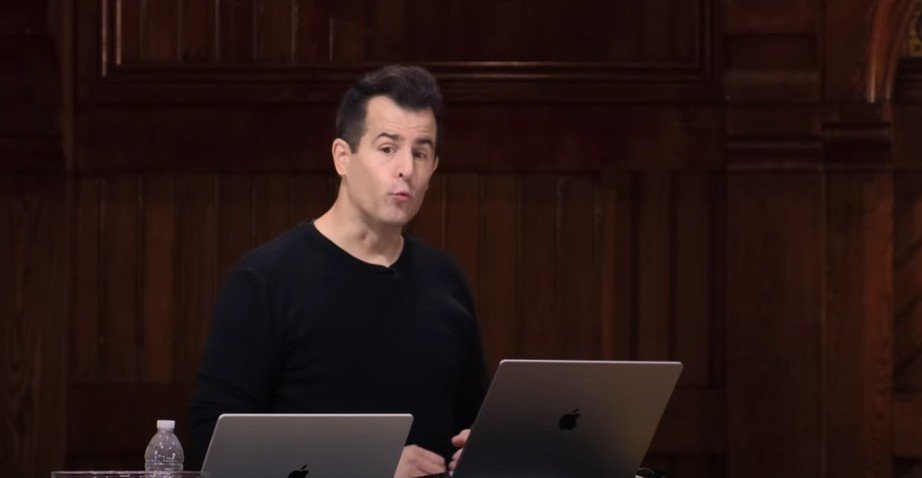Part 5 : Kid Coder Review: Harvard CS50
This blog post is the fifth a five-part series reviewing popular, affordable online platforms that teach kids to code. Each review focuses on four key areas that matter most when choosing a learning tool for children:
Beginner-Friendliness
Interactivity and Enjoyability
Content Quality
Cost and Accessibility
Reviewer:
Braedyn Thompson is a rising sophomore at UC Berkeley studying Computer Science & Economics and one of Kigumi Group’s Inclusive Tech Intern for summer 2025.
Harvard CS50 : Rating by Kigumi
Overall Rating by Kigumi Reviewer: 8.75 / 10
Beginner-Friendliness — 8.2 / 10
Interactivity and Enjoyability — 8.2 / 10
Content Quality — 9.4 / 10
Cost and Accessibility — 9.2 / 10
In today’s digital-first world, coding is quickly becoming one of the most valuable skills a young learner can develop. But for beginners — especially kids and teens — traditional tutorials can feel intimidating, boring, or disconnected from how they naturally learn. The ideal platform combines simplicity, fun, and real technical skills, all wrapped in an engaging, hands-on experience.
In today’s tech-driven world, understanding how computers work is one of the most empowering skills a young learner or adult can gain. But for beginners, especially those with no background in coding or computer science, finding a structured, high-quality introduction can be overwhelming. The best programs combine rigorous concepts with accessible teaching — without sacrificing depth or real-world relevance.
Enter Harvard CS50, a completely free, university-level introduction to computer science that has become a global standard for foundational tech education. Unlike platforms focused solely on writing code, CS50 teaches problem-solving, computational thinking, and the core principles behind how software and hardware operate — all with an emphasis on real-world application.
Beginner-Friendliness — 8.2 / 10
How easy is it for a child with no prior coding experience to get started, follow along, and stick with it?
Harvard’s CS50 is legendary for making rigorous computer science accessible to total beginners — but I’ll be upfront: it’s not an “easy” course.
Professor David Malan, known for his dynamic, engaging teaching style, breaks down complex topics like algorithms, memory management, and data structures in a way that’s understandable even for those new to coding. The lectures are clear, energetic, and designed to demystify intimidating concepts.
However, the course does not shy away from challenging material. For absolute beginners, particularly younger students or those without strong math backgrounds, some problem sets may feel overwhelming at first.
How it could improve:
While the lectures are top-notch, additional beginner pathways with more hand-holding — such as pre-CS50 “foundations” modules or simplified starter exercises — could help make the entry point less intimidating for first-time coders, especially younger learners.
Interactivity and Enjoyability — 8.2 / 10
Does the platform actively engage kids through hands-on learning? Is it fun enough to keep them coming back?
CS50 thrives on a learn-by-doing philosophy. From week one, learners tackle real coding challenges, debug their own programs, and gradually progress from basic problem-solving to building more advanced projects like games, applications, and more.
That said, unlike beginner platforms designed for kids, CS50 isn’t gamified. You won’t find points, badges, or animations. The enjoyment comes from the intellectual challenge and the satisfaction of mastering difficult material.
How it could improve:
Adding any sort of gamification or incentives for completing milestones could make the experience feel more accessible and rewarding for younger learners and those new to this aspect of technology.
Content Quality — 9.4 / 10
Is the material clear, accurate, up-to-date, and genuinely useful? Does it teach valuable skills that can grow over time?
This is where Harvard CS50 stands apart. The course delivers world-class instruction, covering foundational topics every developer or computer scientist should know, including C, Arrays, Algorithms, Memory, Data Structures, Python, SQL, HTML, CSS, JavaScript, Flask, and even Cybersecurity, albeit all surface level, which is an upside to beginners, but not so much as some wishing for a deeper understanding into a specific topic. The curriculum mirrors what’s taught to Harvard undergraduates, updated regularly to reflect current industry standards. It doesn’t just teach coding — it builds problem-solving skills essential for advanced tech careers.
How it could improve:
The core content is exceptionally strong, but offering more optional beginner tracks — including interactive in-browser coding exercises for those struggling with local setup — would help lower the barrier for less technical learners
You can watch video below.
Cost and Accessibility — 9.2 / 10
Is it truly free, with no hidden costs? Can kids access it easily regardless of where they live or what device they use?
CS50 is completely free to access via platforms like edX and YouTube, with no hidden costs for lectures, materials, or problem sets. There is an optional paid certificate for those seeking formal recognition, but all core learning content is available without charge.
Because the course materials — lectures, problem sets, and support — are online, they’re accessible worldwide. Students only need an internet connection, and the setup tools are compatible with most computers.
How it could improve:
For absolute beginners, the need to set up a coding environment and understand terminal commands may be intimidating. Offering an integrated, browser-based coding sandbox for early problem sets could help make CS50 more approachable for tech newcomers.
Overall Rating: 8.75 / 10
Final Verdict:
Harvard CS50 remains one of the most respected and accessible introductions to computer science globally — and one of the few offering true university-level instruction completely free.
For motivated beginners — whether teens, adults, or career-changers — CS50 provides not only practical coding skills, but also a deep understanding of how computers work, how to solve complex problems, and how to think like a developer. While it’s more academically intense than playful platforms aimed at young children, its high production value, real-world relevance, and challenging projects deliver immense long-term value.



